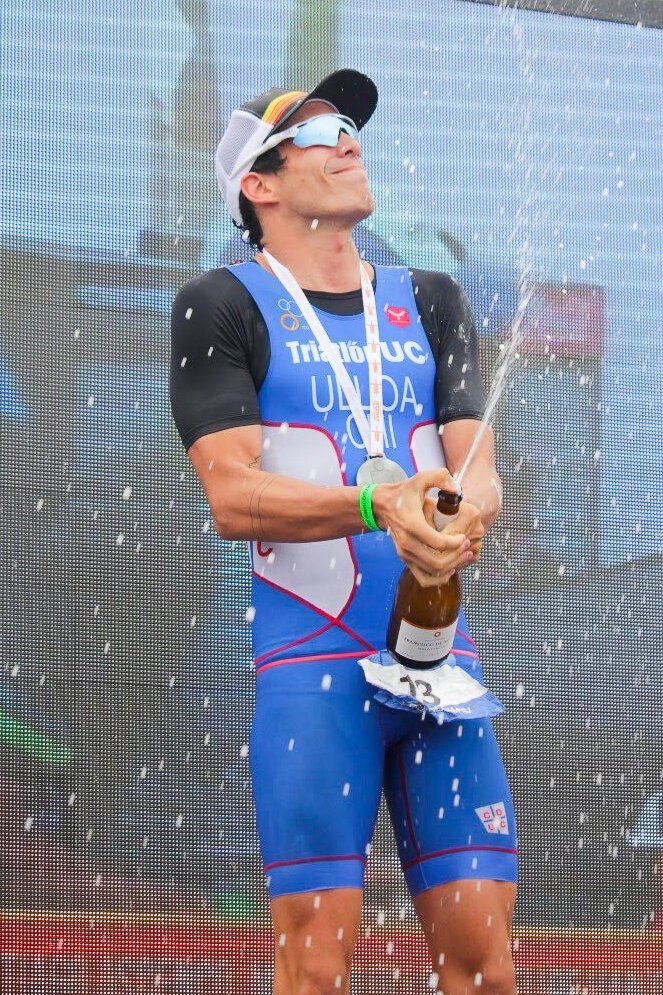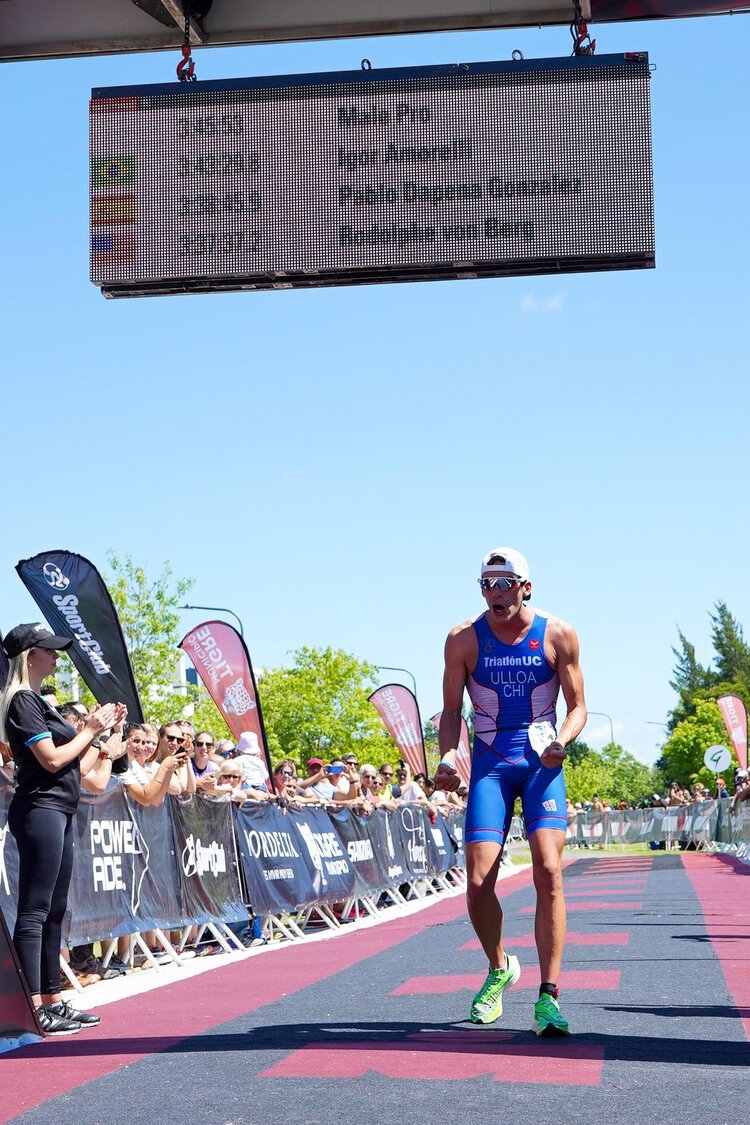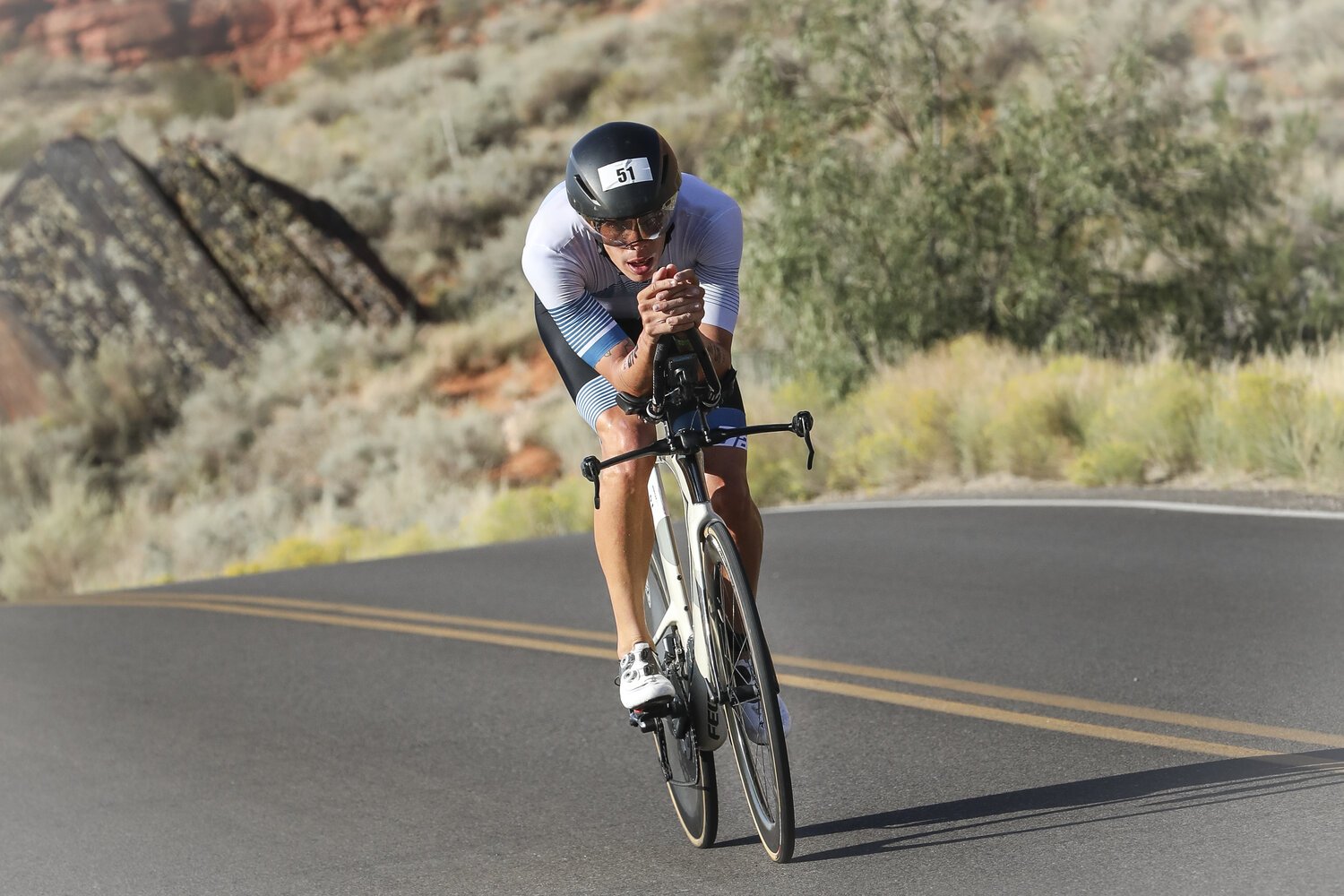My 70.3 Distance Pro Rookie Season
To first understand how cool this season was for me, I think it is important to go back towards the end of 2019. Early that year, I flew over to Australia to train with a professional triathlon team. We were there from January to May and in Spain from May to September. It was probably the best year of my life until now, to be honest. One of the major take always from that year was that I wanted to try out the 70.3 distance and stop racing in the ITU for a bit. I had noticed that I simply was not as “fast” as my competitors and that the longer-threshold style of training came relatively easy to me.
On my way back home to Chile, I signed up to do Coquimbo 70.3. Going into this new distance with zero expectation and wanting to learn as much as possible, felt like a fresh start. I came away with 2nd place and a slot to the Ironman 70.3 World Championships. I was over the moon.
Three weeks later, I raced in Buenos Aires 70.3. It was a stacked field. I came away with 4th place and with a 3.45 overall time, which at the time, was one of the best ever recorded times for a Chilean athlete. You can imagine how happy I was to begin my 70.3 career having just accomplished these results. I was sure that 2020, was going to be my year. It had to be, right?
Well, we all know what happened. In hindsight, 2020 hit me hard. I was in Panama visiting my family when COVID-19 hit, and the country went into complete lockdown. And when I say complete lockdown, I mean, I could not leave my parent’s apartment in over 4 months. No swimming, no running, not even contact with direct sunlight. The government in Panama allowed you to leave your house twice a day to buy food and that was it. I even thought about quitting the sport altogether because of how crazy the whole situation was. With things starting to look a bit better towards the end of the year, I regrouped and decided to give it another proper try. I started looking towards 2021.
DES MOINES 70.3
This was my first race in 2021. I was eager to put together a race that would set me up for the rest of the season. I had a front-pack swim, felt amazing on the bike, coming off in first place. I had some difficulty breathing in the run and dropped down to 14th. I later found out that it was a bike positioning problem and fixed this quite easily. This race gave me confidence that I was on track to have a good season.
BOULDER 70.3
After a 7-week altitude training block in Draper, Utah, I came into Boulder really pumped. The field was stacked and I was feeling good in altitude. The race went as I expected. I came out of the water in 2nd place, rode with the pack for the whole bike ride, and came in 8th at the end. I was quite pleased with that one. It was my first time racing top-tier athletes and I felt I held my own during the race.
MAINE 70.3
This one was 3 weeks after Boulder and I knew that I was going to rip it. Coming into Old Orchard Beach, I felt amazing. It was going to be a fast one. Again, 2nd out of the water, I rode with the pack in 1.58 and ran a 1.10 half marathon, to come in 4th with a new Chilean national record time of 3.34. This was a good one, I really felt in control the whole race. I came away with a good paycheck and confidence that I have chosen the right direction.
70.3 WORLD CHAMPIONSHIPS
This was a big one! I know now that I came in a little too tired after so much racing, but overall, I had a bad day. Coming out in 7th place after a great swim, I took WAAAAY too long in T1 and lost contact with the front pack. I ended up chasing the whole day and came in 23rd. It was a tough day, but a day that I learned the most I have from a single race in years! I can not wait to get back next year and give the top 10 a proper go.
TOP 5 LESSONS FROM MY ROOKIE SEASON OF 70.3 RACING
To win races, you have to be a WORLD CLASS cyclist. It’s that simple.
Dialing in your nutrition plan is one thing, but executing it on race day is completely different. Be sure to take your calculations to practice before the race. Again, they are two completely different things.
Swim and bike for show, run for dough. If you want to get a podium finish, your last 10k of running have to be solid, and ideally the place where you dig the most.
Recovery is just or maybe more important than the hard workouts. This year I really started looking at my HRV and learned how my body reacted to different day-to-day stressful situations. I started sleeping a lot more and saw how my overall performance went up.
Have fun. It truly is all about balance and being sure that you are enjoying the process.
Hope you liked the insight into my season! I will be racing in Indian Wells in December and Pucon in January. Then I will kick back for a couple of weeks, have some beers and plan out a packed 2022. Hope you all have a great week!
Look at the chart
You will notice I’ve highlighted the differences in blood lactate concentration for athletes ranging from junior levels all the way to world-class at 3.5w/kg and 5/kg. We can see a normal increase in blood lactate levels as intensity rises. The most interesting part of this chart is that the 5w/kg world-class cyclists are producing less than 4 mmol/L, which is considered to be right around the threshold.





